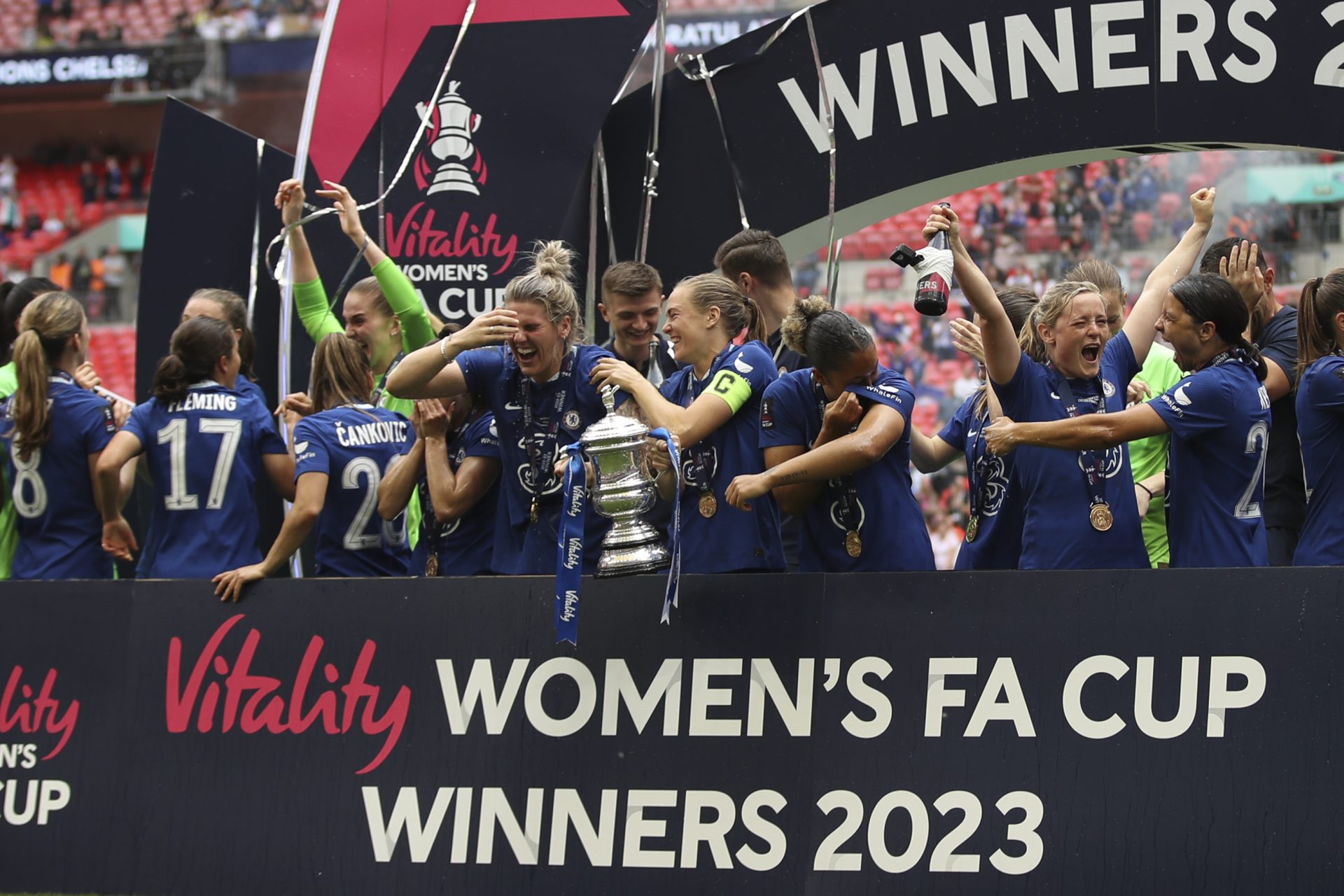
Still challenges ahead to make women’s football really a game for all
Women’s football appears to be growing at record pace but now needs to show that it is a game for all, writes Milly McEvoy.
31 July 2022 felt like a moment of change: a record crowd for a Euros final, men or women, saw England crowned European champions at Wembley.
Ten months later, another record was set as Chelsea claimed Women’s FA Cup glory at the same venue in front of 77,390 fans just a weekend ago. Last Sunday proved that the success of the Euros has not been a flash in the pan; attendances are up, as is positivity and belief in what is possible for the women’s game.
What is pleasing is that the sport seems to have outgrown the bubble of the same people having the same conversations about women’s football while the rest of the world ignores them.
That felt clear when a waiter in Cork noticed my Beth Mead autobiography and talked about Arsenal’s Champions League campaign and the spate of ACL injuries in the women’s game.
Similarly, you only had to say the words ‘women’s football’ in Ireland and you were instantly met with people declaring their love for Katie McCabe, the captain of the Girls in Green.
Closer to home, a friend who had never taken much interest in men’s football gave her views on the Lionesses’ recent game against Australia.
The people who take the time to write ‘Who cares?’ on social media will always be there, and while they should not provoke a response, the question they are asking is an interesting one for a different reason.
We want our sports teams to be representative of us as a population, the Lionesses and club squads across the country are not. England selected only three players from global majority backgrounds for the Euros, with none of them starting a game.
The lack of diversity among players is reflected among football fans, as research from Football Beyond Borders [FBB] found. When we interrogate who cares, the answer is overwhelmingly white.
The FBB study interviewed inner-city girls and found that while 56% of respondents had watched at least one Euros game, 63% could not name any Lionesses.
As the report landed, the women’s football bubble of positivity sunk back down to earth.
FBB only spoke to 650 girls and non-binary people between the ages of 13 and 18, so those interviewed perhaps do not speak for the whole of the teenage girl population. But they do speak for a population often ignored by mainstream media.
FBB’s recommendation is that we listen to them, and we centre them in what we do next because right now they do not feel included in women’s football.
The same feelings of anxiety and trepidation about showing an interest in football that I felt 10 years ago are still being felt today but by a population that is even more marginalised.
We have a chance to make women’s football a welcoming space for everyone, far removed from men’s football. It has already started at the top as the Lionesses once again lead the way.
Watching England Women play is a safe experience where you know the players care as much about you as you do for them.
They have shown they care with their push for equal access to football for girls in school, but once that comes into place, the work cannot stop.
We must ensure that those delivering football sessions at the grassroots level reflect the population of girls that will hopefully be eager to access it, or at the very least that they cater to diverse needs.
A delicate balance must be struck, however, as a push to get more girls into football cannot ignore the adult women who are already engaged, as well as the generations who have missed out.
Women’s football has for too long been branded as a ‘family day out’, which alienates a large portion of potential fans, paying fans. It also does not cater for the thing that football relies on, fans returning week in, week out to cheer on their team.
It is perhaps partly why we have seen record crowds when women’s teams have played at their club’s main stadiums, but even the top teams are not selling out their usual, much smaller, grounds on a regular basis.
Negativity is not helpful, but a dose of reality is.
Women’s football is riding a wave and doing it well as it looks to secure a long-term future as an entity and identity separate from men’s football.
It is no surprise that Baroness Sue Campbell, the FA’s Director of Women’s Football, put it perfectly at Wembley last week:
“[The FA Cup final] is a wonderful showcase of everything we’ve been working to achieve,” she said. “And it’s a real statement about where the professional women’s game has got to. I don’t want to feel complacent, though, because we have still got a long way to go.”
Milly McEvoy leads on women’s sports content at Sportsbeat, working with clients including the Football Association, Six Nations and the International Cricket Council. She can found on Twitter here